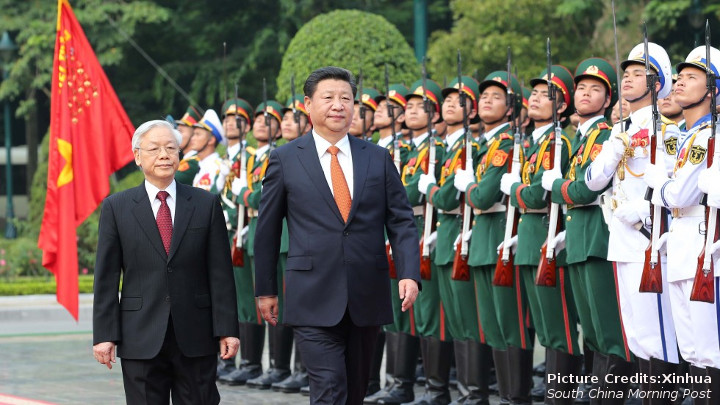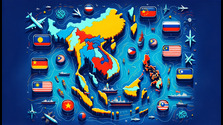How Can 2017 be a New Boost on China-Vietnam Relations over the South China Sea?

Ramses Amer
In China’s foreign relations regarding the South China Sea (SCS) Issues, Vietnam is undoubtedly one of the key countries that China has to face and need to be handled well for its overall good neighbourly relations in its regional foreign policy. Due to the ideological symmetry, China and Vietnam have more channels to work towards that direction. Top-level communications between leaders of both Communist Parties, Governments and Congresses, including the exchange of visits, are considered very important in their bilateral relations given their significance in guiding the future development across various fiends, including the most sensitive issues in the SCS. The start of 2017 in China-Vietnam relations can shed light on the bilateral approach towards the South China Sea situation.
From 12 to 15 January 2017 General Secretary of Communist Party of Vietnam (CPV) Nguyen Phu Trong paid an official visit to China. Both countries attached great importance to this visit. Vietnam chose China as the first country for its Party Secretary to visit in 2017. Besides the high-ranking officials Trong’s delegation also included Vietnamese local officials with the intention to expand economic and trade cooperation between localities in both countries. This was Trong’s first visit to China after his re-election as CPV chief at the 12th CPV Congress and it took place just before the 67th anniversary of establishment of China-Vietnam diplomatic relations on 18 January.
Related Publications
-
China as a Black Sea Actor: An Alternate Route
China’s international role has expanded rapidly in the last decades, and the Greater Central Asian region, Europe, and the Middle East, to which the Black Sea region (BSR) connects, are […]
-
Strategic Standoffs: How Repeated Games Illuminate the Future of South China Sea Disputes
Introduction The motivation to put this piece together was observing the recent bizarre and, dare I say, childish behaviour of the Chinese Coast Guard in the South China Sea (SCS), […]
-
ISDP Annual Report 2023
ISDP’s Annual Report for the year 2023. We look back on 2023, a year in which tensions and conflicts captured the strategic space in ISDP’s focus areas, making headlines around […]
-
Risk Reduction and Crisis Management on the Korean Peninsula
The situation on the Korean Peninsula is inherently intertwined with the growing instability of the East Asian security environment, where high tensions significantly increase the risk of unintended incidents and armed […]
-
Taiwan and the Diplomatic Squeeze
In mid-March 2023, the self-governing island of Taiwan lost another one of its already few diplomatic allies. Announcing the severing of diplomatic ties between Taiwan and Honduras on Twitter on March 15, […]




